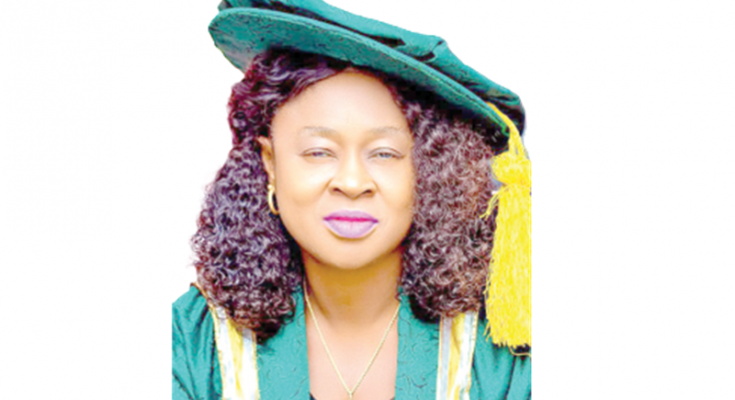Professor Ngozi Chuma-Udeh, an education administrator of repute is the Anambra State Commissioner for Education. In this interview with CLEMENT IDOKO, she speaks on the efforts to transform the educational landscape in Anambra and sundry issues.
What has your experience been as Commissioner for Education in Anambra State?
When we came on board, the first thing Governor Chukwuma Soludo noted was that there was a dearth of teachers. Then, there were schools without teachers and he deemed it as an anomaly because he is an educationist par excellence too. The governor has a strong passion for education. So, we immediately employed 5,000 teachers, but along the line he felt that the 5,000 was not enough because the plan was to beat the United Nations and Federal Ministry Education specification on teacher-student and teacher-pupils ratio. More so, we wanted to make adequate provisions for the hard-to-reach areas in the state too, so we employed another 3,115 teachers. It will interest you to note that these employments were done typically on merit. There was the initiative brought about by by the governor in ensuring that teachers who are employed from certain places teach in the same areas. Teachers were employed based on their residential local government areas. In that case, there weren’t excuses of teachers not being able to come to school because as a teacher, you are teaching your own people and you don’t want your people to wallow in ignorance.
These processes ensure the availability of teachers and not just availability, but it also ensures that qualified teachers teach in all the communities across the state.
However, the governor, having ensured that the era of schools without teachers in Anambra State was eradicated; also ensured that there is continuous training of the teachers in order to guarantee that they are suitable for the office they occupy. Aside from that, there is room for enough content to deliver to the learners. There is what we call a continuous upgrade of knowledge of these teachers through training, symposium, conference attendance, regular training, among others.
What has the state done in the area of deployment of technology for teaching and learning in classrooms?
The mantra of Professor Chukwuma Soludo, is “technology for everything, technology everywhere.” He aims at producing technologically-equipped citizens who will be suitable, usable and acceptable abroad. So, for him, it is technology for everything and this he has decided to bring this into the education sector.This is the reason why he equipped all the head and ICT teachers as well as the principals with laptops to facilitate the deployment of technology into teaching and learning.
That was not the end; there is an holistic free education in the state. Though, there seem to be free education in the state before now, learners still pay some certain dues such as retinue and orientation dues and a host of others. Meanwhile, governor Soludo has abolished every single one from the Anambra public schools. He gave a holistic free education from pre-nursery to SS3 level. It is now just a matter of a child picking his bag and going to school.
Nigeria is noted to have the highest number of out-of-school children in the world, how do these efforts by your state help to address the menace?
I can say categorically that we have the lowest out-of-school children in Anambra State. The rate is put at 0.2 percent. Apart from the scholarship schemes for children the government also pays the external examination fees, such as the West African Senior School Certificate Examination (WASSCE) and National Examination Council (NECO), examination for some of the students who have exemplified themselves in some of the schools.
The Federal Government through Universal Basic Education Commission introduced smart schools, has your state embraced smart education, giving your earlier comments that the Governor places a high premium on technology?
The state has a great agenda on this; we are upgrading all the public secondary schools in the state to smart schools. The first batch is right now being implemented, as the reconstructions of the schools are going on. Equipment is being installed in about 25 secondary schools chosen from each local government in the state being upgraded to smart schools. We are creating a kind of environment that will be conducive for effective teaching and learning.
Read Also: Ibadan funfair tragedy: Agidigbo FM denies organising event
The Federal Government is making plans to integrate skill into the school curriculum. What are your plans in this particular area?
Though this is what we have already been observing in the state, we intend to do more. We are very much in support of the strategy, and we intend to domesticate it with little addition here and there. However, whatever we domesticate is at the expense of our people. On our part, we are incorporating robotics and AI into the school curriculum. We hope that within the next one year, the students will be better for it.
We call the period of our skill acquisition programme for secondary school graduates the ‘the finishing schools.’ It is that gap between the secondary school and tertiary institution. If a child wants to spend a year, either due to late admission, this plan is able to accommodate him or her. These schools are basically for skill acquisition. So, at the end of one year, the child will be certificated with a particular skill.
Also, we have what we call the Solution Innovation District (SID). We want to create a Silicon Valley in Anambra State and as a result of this; there has been a continuous training for students in ICT.
One of the challenges in most of the states is the non-payment of salaries of teachers, what is Anambra doing in this regard?
In Anambra State, we have never had issues with the payment of teachers’ salaries. The governor pays teachers’ salary on the 25th of every month and he is already implementing the minimum wage directive. Basically, the directive was implemented in October.
Are there special incentives for teachers teaching in rural communities in your state?
Yes, we have certain incentives for teachers working in the rural areas. In fact, the government builds and sometimes provides accommodations for teachers in the hard-to-reach areas, among other incentives.








